Give an 18-month-old a shoe, check back 10 minutes later, and it's a very big maybe he will have it on his foot. But give him your smartphone, and in a mere five minutes, he can take 100 pictures of the carpet, send weird messages, and delete essential apps. Imagine what your child could do if they were able to harness this technical aptitude and put it to good use — and they can, with learning apps.
You are, however, likely to receive unsolicited advice from self-appointed experts about the evils of screen time. And while these "experts" may be doing it out of selfless concern for your child's brain, it's far more likely they just like to judge other people. The only thing worse is the guilt you place on yourself. But is all of this judgment and guilt necessary?
Negativity, in the form of guilt or judgment, probably isn't going to help anyone. And in the digital age, you probably don't want to shield your child entirely from technology, as they will probably be inundated with it later. But we're also not saying you should plant a smartphone in your 18-month-old's hand, leave him or her to fend for his or herself, then head out to the Vegas Strip to party hard. (Kid needs to learn some self-reliance, right?)
It's a crucial time during your child's life for physical, cognitive, emotional, and social development. Reading, play, talking, and sleeping are still very necessary in the real world, not the digital. For these reasons, the American Academy of Pediatrics recommends:
Children aged 18 months to 2 years should be joined by a parent in viewing high-quality media to help them understand what they are seeing, and to make connections to the real world.
Sesame Street and PBS are cited as examples of quality digital media by AAP, but not a whole lot else. Perform a search for "toddler app" in Google Play or the Apple App Store, and it's easy to become overwhelmed by all of the options. So what separates quality learning apps from those that are mindless entertainment (or worse yet, not even entertaining)?
Use Child, Content & Context to Pick the Right Apps
The Fred Rogers Center for Early Learning and Children's Media (inspired by and dedicated to the legacy of Fred Rogers from Mr. Rogers' Neighborhood) identifies quality learning apps using child, content, and context attributes.
- Child: The specific intellectual abilities, physical proficiencies, social-emotional needs, interests, and potential of your unique child, during different developmental stages, should be taken into account.
- Content: The purpose of the media should be evident. It should include more than one of the following functions: presents new concepts, educates, fosters certain skills, and is engaging.
- Context: It's important for your toddler to receive human interaction in conjunction with the use of digital media. In other words, apps are not a suitable electronic babysitter. Also, certain apps may be more conducive to learning in specific settings, such as outdoors or at home.
Reach These Developmental Milestones After 18 Months
According to the cognitive section in the important milestones checklist for 18-month-olds, the Centers for Disease Control and Prevention lists the following learning, thinking, and problem-solving skills as minimum developmental achievements for most children just after 18 months.
- Knows what ordinary things are for; for example, telephone, brush, spoon
- Points to get the attention of others
- Shows interest in a doll or stuffed animal by pretending to feed
- Points to one body part
- Scribbles on his own
- Can follow 1-step verbal commands without any gestures; for example, sits when you say 'sit down'.
If your child isn't talking — or using at least six words at 18 months — it might not be anything to worry about, but the CDC does recommend mentioning it to your child's pediatrician.
Many of the apps we've selected are geared toward the acquisition of first words and pre-reading stimulation. It's usually not necessary or recommended to go on a regimented program to boost your child's literacy or language skills; For children this age, these skills are typically attained through routine activities like talking, reading books, playing, and laughing. Use our recommended apps to chat with your child, and notice what types of topics, characters, and activities he or she is interested in. Then leverage those interests as learning opportunities.
- Don't Miss: 21 Free Android Apps Your Kids Will Love
Apply the CDC's Recommended Activities for 18 Months
While you aren't going to find the CDC recommending app usage or any specific app, below is a list of some activities it does promote. These activities serve as a basis for the apps we are going to recommend, along with the above developmental guidelines. Note that this list is not all-inclusive.
- Encourage pretend play.
- Read books and talk about the pictures using simple words.
- Copy your child's words.
- Use simple, clear phrases.
- Ask simple questions.
- Hide things under blankets and pillows and encourage him to find them.
- Play with blocks, balls, puzzles, books, and toys that teach cause and effect and problem solving.
- Name pictures in books and body parts.
- Provide toys that encourage pretend play; for example, dolls, play telephones.
Consider the Cost of Paid vs. Free Apps
Some of the apps mentioned here require payment; some do not. There are some good free apps out there, but you might want to tread carefully for a couple of reasons. Free apps often include advertisements and in-app purchases. Having seen firsthand how difficult development can be, I am of the opinion that developers should be paid. So I am willing to shell out a few dollars for a well-designed app.
When it comes to apps that I use, if I don't want to pay for an app, I consider ads to be the cost of my using said app. It's a little bit of a different ballgame where my kid is concerned though. If the app has ads, you'll want to consider the interaction your child will likely have with these ads. Perhaps more consequential still are in-app purchases, which could potentially cost you upwards of $200 for one app.
Try Our Favorite Cognitive Apps for 18-Month-Olds Out
We are favoring apps that meet the three C's (child, content, context); criterion similar to the CDC's developmental guidelines; and those that have activities comparable to what is recommended by the CDC.
Mostly, we looked for apps that encourage pre-reading stimulation. Luckily, most toddlers like story-time — although, it may be hard to sit still. At 18 months, most children can say at least a few words, and they can understand and point to more even words and objects than they can articulate.
The apps below are in no particular order, so the first isn't necessarily the best.
App 1: Peekaboo Barn
Kids this age tend to be interested in animals and games of peekaboo, at least in general. And it sure doesn't hurt for an app to be simple, as anything complex can become overwhelming and overstimulating. Peekaboo Barn is the right blend of those elements for an 18-month-old. Peekaboo Barn is not so simple that it loses its aptitude as a learning app; your child can still use it to become familiar with the names and sounds the animals make.
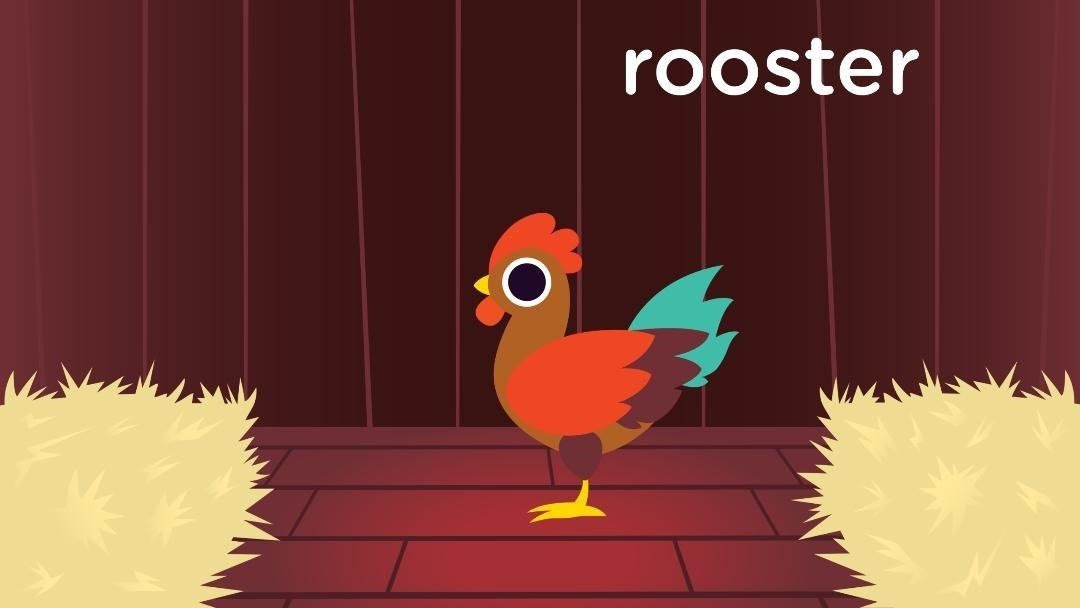
If it's in the cards and easily accessible, consider taking your child to a farm to see the animals and objects in real life. Many zoos also have these animals, or you could look at what you can find in your backyard.
Currently, Peekaboo Barn is $1.99 on both Android and the iOS App Store. There is a "lite" version for iPhone and Android, but it only allows you to see three animals, then tells you to buy the full version.
App 2: Laugh & Learn First Words Fun
The Fisher-Price Puppy suite of apps is modeled after the Fisher-Price Smart Puppy talking stuffed animal. Like the stuffed animal, there are different levels and stages of "difficulty" in Laugh & Learn First Words Fun, depending on your child's age.

Level 1 introduces first words animatedly. Level 2 teaches the concept of matching objects and reinforces first words. Level 3 breaks out the seasons. The blocks are fun to watch come to life as part of a seasonal scene and emphasizes the use of more words. Music videos are featured throughout.

Of course, your child still learns best through you. You can help your child label the objects they see on the screen. Your child will probably still need encouragement to tap, swipe, or point.
Laugh & Learn First Words Fun is free on both Google Play and the iOS App Store.
App 3: Monkey Preschool Lunchbox
Monkey Preschool Lunchbox is more sophisticated than the previous two apps, both in what it teaches and asks your child to do, and regarding features. It offers seven games for children aged 2–5 (but I still use it with my 18-month-old) in eight different languages.

Instead of asking your child to match two objects they can see right in front of them, Monkey Preschool Lunchbox takes it to another level by not only asking him or her to match but also to remember where objects are (it's the game "Memory"). While this might be too challenging for this age, my daughter seems to have a better memory than I do — unless I'm asking her to do something she doesn't want to do.
These games and activities can help your child learn letters, colors, and the names of common objects. Monkey Preschool Lunchbox rewards your child with a sticker if they win a game (and your reward is that it won't end up in your 18-month-old's mouth). Although more complex than the previous two apps, its interface is still designed for a preschooler to navigate — not terribly difficult.

The app abides by privacy standards. Games with "hidden" objects do tend to appeal to this age group. Potentially, although this might be a stretch, the app could further the acquisition of a different language.
Monkey Preschool Lunchbox is available on both Google Play and the iOS App Store for $1.99.
App 4: PBS KIDS Games
Aside from PBS having been endorsed by AAP, the sheer breadth and quality of the PBS KIDS Games app is enough to take one's breath away. There are over 90 free games with four separate categories to create, problem solve, measure, or read.

Of course, not all of these PBS KIDS Games will be suitable for your 18-month-old, but out of 90, surely some are. One downside to such a beast of an app is that there tend to be long waits for games within the app to load. Once you are able to get them to download, you can enjoy games modeled after educational television shows such as Sesame Street.

If you are frustrated with the loading time, many of the apps are also broken out into individual offerings available in the app stores.
PBS KIDS Games is free on both Google Play and the iOS App Store.
App 5: Puzzingo
Compared to the price of some of the other apps we've been dealing with, the cost of the "Pro" version of Puzzingo is staggering, but what's more amazing is its approval rating. You can expect people to not hold back if they don't like an app they've spent nearly $25 on, but parents and kids alike love this app. It does offer in-app purchases but is gracious enough to keep them behind "parent-gates."

Puzzingo can be considered a jigsaw puzzle and vocabulary builder in one, in multiple languages. There are even games within games, as once you complete a puzzle you are rewarded with a selection of mini-games.

The app is also designed to help children with special needs such as autism and speech impediments. It covers a variety of subjects; including not only the obvious and common categories of shapes, ABCs, colors, music, and numbers being represented — but also cars, animals, princesses, trains, dinosaurs, planes, etc.
Puzzingo's pricing structure can vary greatly, depending on whether you want just a couple puzzles or the whole suite. The free version of the app is available on both platforms but allows you and your child to merely get your feet wet.
Additional puzzle packs can be purchased individually in-app for $2.99 each, or you can get the "All Puzzles Access Pass" for $24.99. Unfortunately, paid-for content may not transfer between devices.
App 6: Kids Academy Talented & Gifted
Kids Academy Talented & Gifted is an app with ample learning opportunities: over 5,000 learning activities are within. The activities include ABCs, numbers, songs, puzzles, matching, sorting, classification, geometry, money, measurement, phonics, sight words, vocabulary, reading comprehension, grammar, social studies, and science. If that sounds like a lot for an 18-month-old, don't worry, because you follow a path from simple to more complex. There are flashcards and printable worksheets.

Kids Academy Talented & Gifted was developed with the input of child educators and psychologists. It offers a lot of guidance for parents and a lot of feedback for children. It involves and encourages problem-solving and critical thinking.

Downsides some users have mentioned include poor customer service, some device incompatibility, and issues with load time. Nonetheless, approval ratings are high in general.
Kids Academy Talented & Gifted can range from a full-on educational program to just a few activities. The free version is very limited. The "Gifted & Talented Membership" is the most expensive option at $129.00 (on Android) or $129.99 per year (on iOS). Other subscription-based options include $19.99 per month or $39.99 per quarter. An "All Access Pass" is also available for $97.99.
Smaller activities, such as coloring books, can be attained for $2.99. The "Preschool Kids Games & Puzzles: All in one Activity Center" is available for purchase for $14.99. Kids Academy offers its services and products to both parents and teachers. In fact, at the time of this writing, Kids Academy is running a special for teachers to get a month's subscription for just a dollar.
App 7: Even Monsters Get Sick
If your child is in daycare at all, you are no doubt familiar with having to persuade your child to take his or her medicine. Even Monsters Get Sick is an interactive story app meant to make that battle a little bit easier.

In Even Monsters Get Sick, Harry has acquired an adorable new pet monster, but something is wrong. As Harry tries to help his pet monster get well, you and your child can assist by taking part in six games, engaging in surprises on every page, and learning that perhaps going to the doctor and taking medicine doesn't have to be a bad thing.

Even Monsters Get Sick is free on Google Play, but costs $0.99 in the iOS App Store.
App 8: Goodnight Mo
Bedtime may be another battle scene at this age. Here to help is Goodnight Mo, which is sleepy, soothing, and tender. Mo is another cute monster that you and your child can care for by helping him bathe, brush his teeth, and rock to sleep. In Goodnight Mo, there are 3D images, light interactions, and calming music throughout.

Careful that you don't catch a case of the yawns. Another issue that I had with this app in particular is that my daughter loved it so much I thought I would never be able to pry the phone out of her hands. If you find that your child is liking the apps on your device a little too much, it's possible to set app limits on games or other addictive apps on your iPhone in iOS 12 and in Android P.

Battery drain is another issue, but you can find out what's draining your battery and shut it down.
Goodnight Mo currently costs $4.99 on Google Play and the iOS App Store.
App 9: Barnyard Games for Kids
Barnyard Games for Kids Free has a lot on lockdown without payment, but "Tap Farm" is fun for having your child identify by pointing (tapping) outdoor objects and animals.

The app is very simple, but with room for growth opportunities as your child gets older and if you are willing to pay more, of course. The app introduces and/or enforces the concept that we share our planet with animals — or at least, the most common ones you might find on a farm.

A simple activity to engage in during app use is to ask your child to identify the name of each animal or object, what sound it makes, and/or to point or tap on it.
Barnyard Games for Kids is available for free, but you can only access two games. For both Android and iOS, $3.99 is required to unlock all 14 games.
Wrapping Up
Technology isn't going away anytime soon, so why not make the best of it? Of course, you will want to use a balanced approach and include many off-screen learning opportunities for your child as well.
What learning apps would you recommend to other parents with an 18-month-old? With so many apps available, we'd love to hear what you have to add to the list.
Just updated your iPhone? You'll find new features for Podcasts, News, Books, and TV, as well as important security improvements and fresh wallpapers. Find out what's new and changed on your iPhone with the iOS 17.5 update.
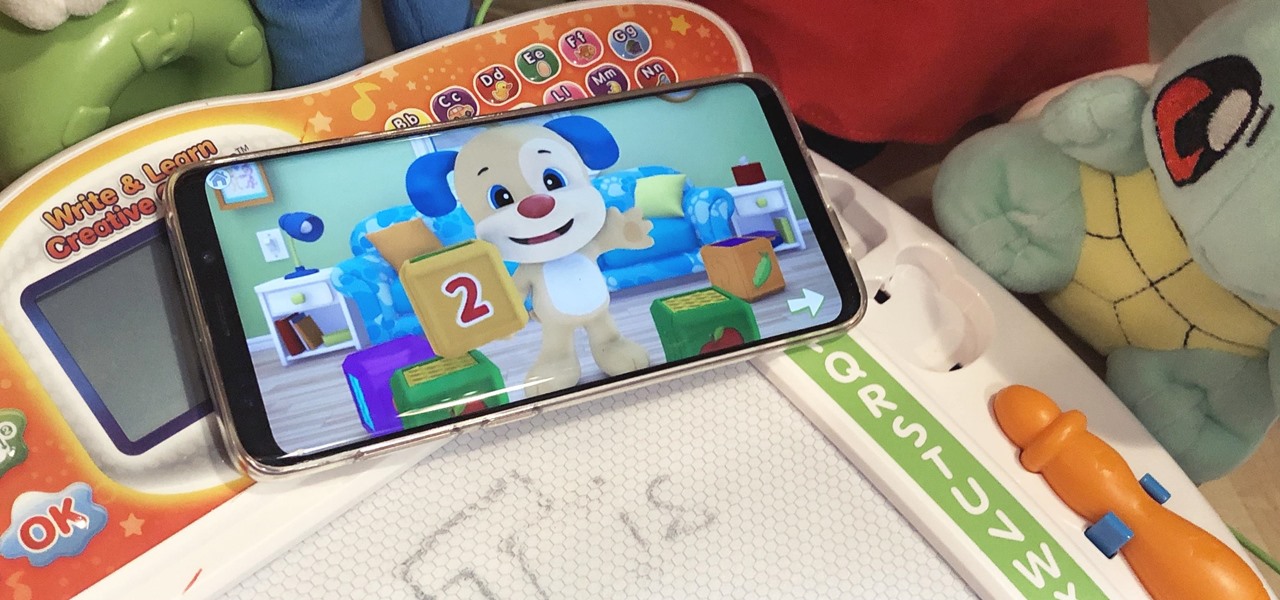
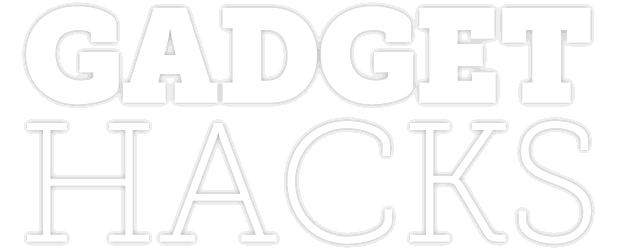

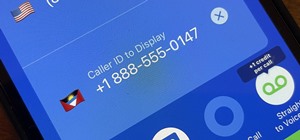
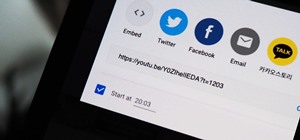
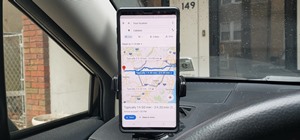
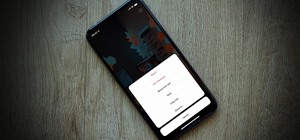
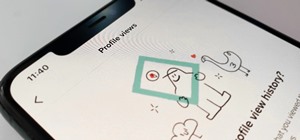
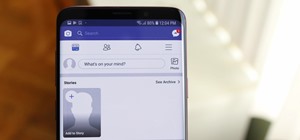
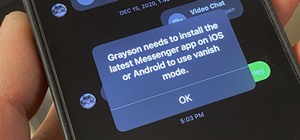
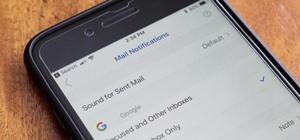

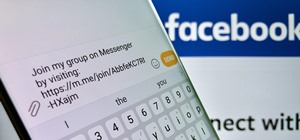


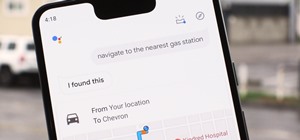



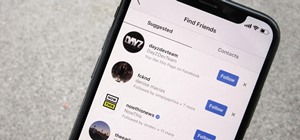

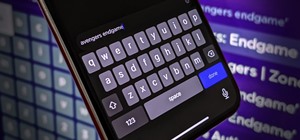
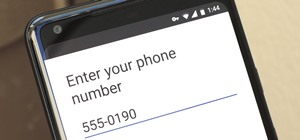
Be the First to Comment
Share Your Thoughts